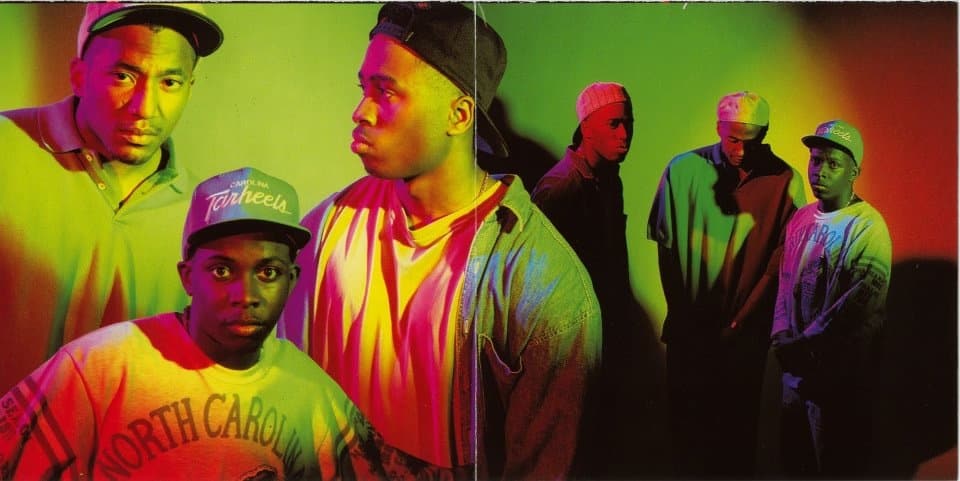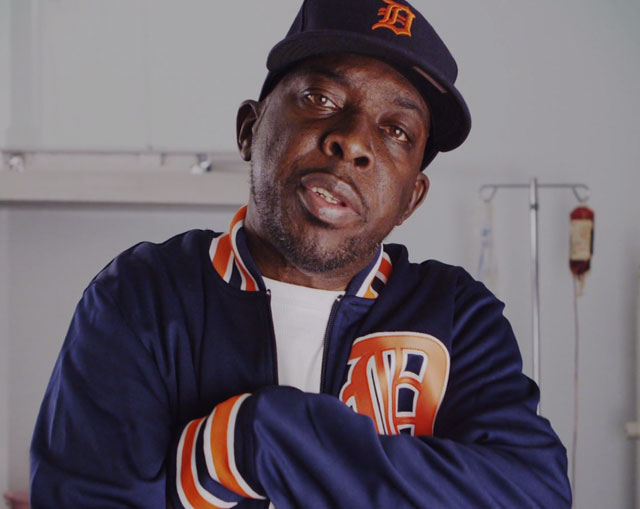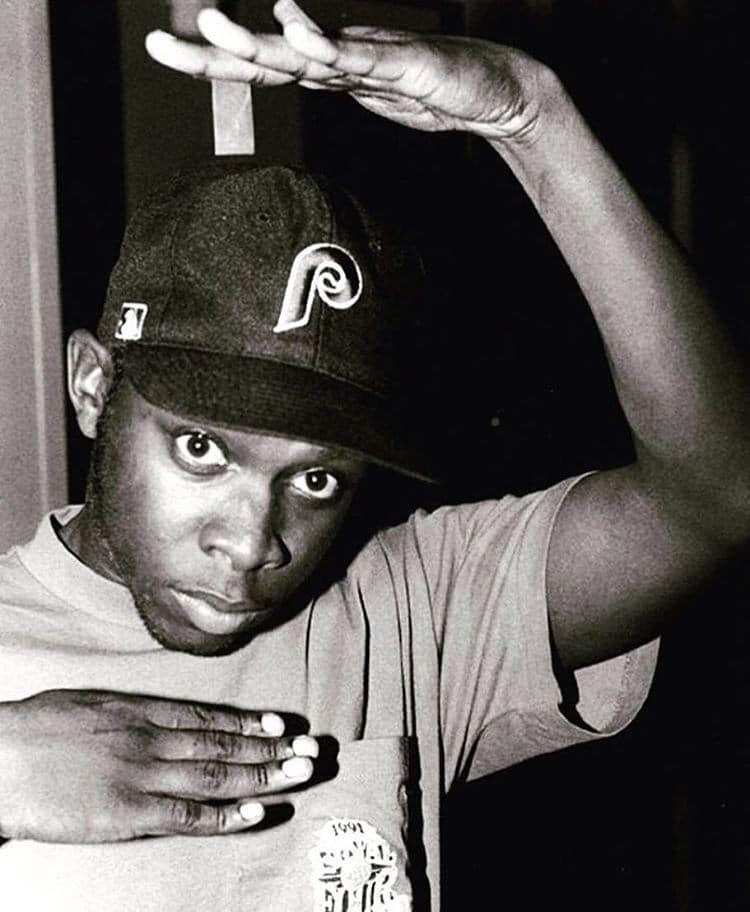
Born Malik Isaac Taylor, rapper Phife Dawg, a member of the legendary rap group, A Tribe Called Quest, musical legacy continues on long after his death.
Taylor, known as ATCQ’s cocky, high-pitched MC, died in 2016 from diabetes complications at the age of 45. The rapper/producer spoke about his condition in his music, famously referring to himself as the “funky diabetic” in the group’s song “Oh My God.”
During a ceremony on the late rapper’s birthday in New York, Linden Boulevard was co-named as Malik “Phife Dawg” Taylor Way at the intersection of 192nd Street in the Saint Albans neighborhood of Queens, New York City. Attendees included A Tribe Called Quest co-members Q-Tip and Jarobi White, extended Tribe family Busta Rhymes and Consequence, rapper Cormega, city government officials and members of Taylor’s family.
“It’s really a sickness,” Taylor said in Beats, Rhymes & Life, Michael Rapaport’s candid 2011 documentary on the group. “Like straight-up drugs. I‘m just addicted to sugar.”

The musician had been struggling with health issues associated with diabetes for several years, and received a kidney transplant from his wife in 2008.
Phife co-founded the hip-hop group in 1985 with his classmates Q-Tip, Jarobi and Ali Shaheed Muhammad. With hits like “Can I Kick It”, “Scenario”, and “Check The Rhime” the group was a favorite and grew millions of fans from all around the world.
TAKE A LOOK: A Look Back At A Tribe Called Quest 25 Years Later
The Music Legacy Changed Hip-Hop
Tribe’s second album, The Low End Theory, was released on September 24, 1991, with “Check the Rhime” as the lead single; the song largely established the lyrical interplay between Q-Tip and Phife Dawg. Mixing engineer Bob Power played a major role on the album, as he was tasked with removing surface noise and static that is typically heard on hip-hop songs sampled from old vinyl records. During the recording sessions, White left the group to pursue a career in culinary arts, and they hired Chris Lighty as their new manager after signing to Rush Artist Management.
The Low End Theory received widespread acclaim from critics. The Source gave the group its second consecutive five mic rating, praising their “progressive sound” and “streetwise edge”, also noting that “Those who questioned Phife’s microphone techniques on the first album will swallow those doubts as he practically steals the show on this one.” The album peaked at #45 on the Billboard 200 and was certified gold on February 19, 1992; it reached platinum status by 1995. In the aftermath of their success, the group contributed the song “Hot Sex” to the soundtrack for the film Boomerang in 1992.
A Tribe Called Quest released their third album, Midnight Marauders, on November 9, 1993. The lead single, “Award Tour”, became the group’s highest-charting single and helped to land the album at #8 on the Billboard 200. The production, still rooted in jazz, was a return to the eclectic sounds found on People’s Instinctive Travels, with a more prominent funk influence, including grittier drums. The voice of a “tour guide”, on the intro and at the end of several tracks, added further cohesion to the album.
The group would go on to make its mark as one of the most progressive hip-hop acts of its time. And commercial success didn’t elude them. ATCQ’s 1996 album Beats, Rhymes and Life reached No. 1 on the Billboard 200 and its follow-up, The Love Movement from 1998, peaked at No .3 on the chart (another, earlier set, Midnight Marauders, reached No. 8 on the U.S. chart in 1993). They were rewarded in 2005 with a Special Achievement Award at the Billboard R&B Hip-Hop Awards In Atlanta.
On one of their final shows, the band reformed to perform the song on Jimmy Fallon’s US chat show, as they marked the 25th anniversary of their debut album People’s Instinctive Travels and the Paths of Rhythm. Phife, who had the nicknames “Five Foot Assassin” and “The Five Footer” because of his short stature (he stood at 5 ft. 3 in), released a solo album, Ventilation: Da LP, in 2000.
Phife’s Battle with Diabetes
Phife also nicknamed himself as the “Funky Diabetic” in which he shared in the 2013 documentary film, “Beats, Rhymes & Life” was favorable among fans who also suffered from the disease. In the early 200’s, Phife had to cancel his appearance on David Letterman with the rest of the group because of complications from the disease. It was after that, the rapper made his battle with disease more public.
Following the group’s dissolution, Taylor continued to battle diabetes, reuniting with the group for live shows, in part, to help defray medical costs. “Even though I knew I had [diabetes], I was in denial,” Taylor said in the documentary. “I had to have my sugar. You have to accept it. If you don’t accept it, it’s going to kick your ass.”

Black men like Phife have a higher risk of developing and experiencing complications from diabetes than non-Hispanic white men:
- Prevalence: 13.4% of non-Hispanic Black men in 2018 had diabetes, compared to 12.7% of Black women.
- Complications: Black men are twice as likely to die from diabetes-related complications than non-Hispanic white men. They are also more likely to develop diabetic retinopathy, end-stage renal disease, and limb amputation.
- Risk factors: Black men have poorer glycemic control than non-Hispanic white men.
Some things that can help with diabetes include:
- Losing weight
- Eating healthy food
- Being active
- Taking medication as prescribed
- Receiving diabetes self-management education and support
- Being consistent with medical appointments
Along with acts like De La Soul and Queen Latifah, the band were part of an overall movement that challenged the macho posturing of rap in the ’80s and ’90s. Their lyrics addressed issues like date rape and the use of the N-word in the track Sucker Niga, and avoided the hip-hop cliches of gunplay and expletives.
Musically, they fused jazz with hip-hop, often rapping over a drum loop and an upright bass – while 1991’s complex, atmospheric The Low End Theory has often been ranked among the best hip-hop albums of all time.
Continue to rest In Peace, Phife.
Here’s a little walk down memory lane in the video below:
https://dailymotion.com/video/x3mtdm









